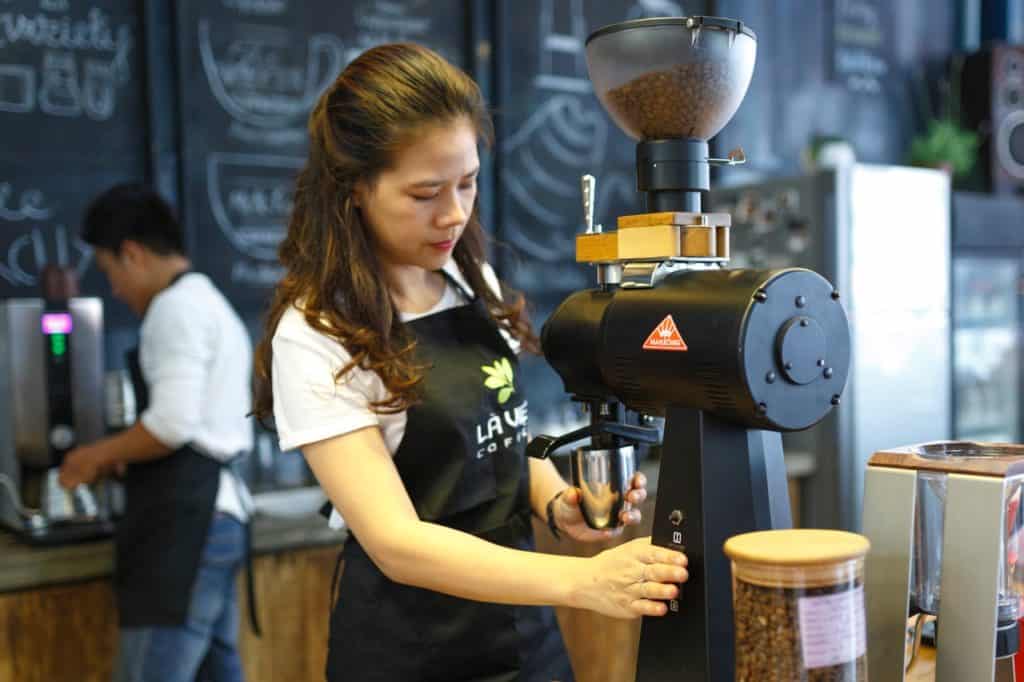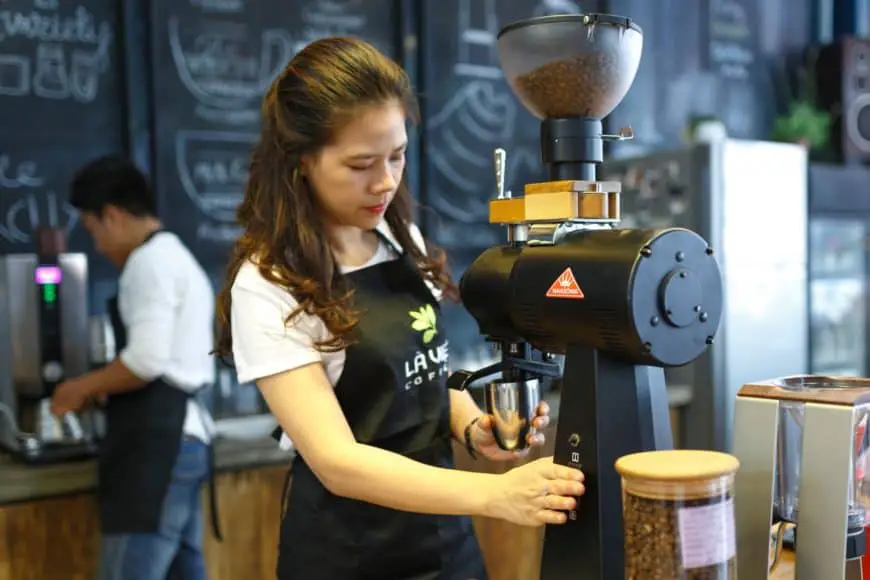
A barista is the heart of any coffee shop, blending deep coffee knowledge with the skill to craft a perfect cup. From mastering espresso machines to serving up pour-overs, baristas bring out the best in coffee beans while keeping customers happy.
This guide dives into what baristas do, the training they undergo, and the competitive world they thrive in, offering a clear look at why they’re essential to the booming coffee industry.
The Role of a Barista in a Specialty Coffee Shop
Baristas typically work in coffee shops, cafes, or specialty coffee bars, where they operate commercial espresso machines—far more complex than home models. Beyond pulling shots and steaming milk, baristas handle a range of tasks: taking orders, greeting customers, processing payments, managing inventory, and pricing items. Your morning latte or drip coffee? That’s the barista’s handiwork, balancing technique with customer service.
The job isn’t as simple as it looks. Commercial espresso machines vary from manual to automatic, with manual ones demanding precise skill to control pressure and timing. Baristas must adapt to each drink’s requirements—espresso, cappuccino, latte, pour-over, or drip—while considering factors like bean origin, roast, and even the day’s weather, which can affect extraction. Customer preferences add another layer, requiring baristas to tweak recipes on the fly to meet expectations. It’s a dynamic role that blends craft with hospitality.
What Does a Barista Do?
Baristas are coffee experts who prepare a variety of drinks, each with distinct techniques:
- Espresso: Pulling a balanced shot with the right crema and body.
- Cappuccino: Frothing milk for the perfect foam-to-espresso ratio.
- Latte: Steaming milk for a creamy texture and latte art.
- Pour-over/Drip: Brewing with precise water temperature and timing.
- Cold Brew: Mastering slow extraction for smooth flavor.
Beyond brewing, baristas maintain equipment hygiene, roast beans (in some shops), and ensure a clean workspace. They also need soft skills—listening, clear communication, and organization—to handle busy rushes and picky customers. The best baristas combine technical prowess with a knack for making every customer feel valued.
Training to Become a Barista
No formal education is required to become a barista, but training is essential. Most coffee shops provide on-the-job training, led by experienced staff, covering everything from machine operation to customer service. Some baristas take specialized courses through organizations like the Specialty Coffee Association, but these are optional. Training is intensive due to the job’s demands, often focusing on:
- Coffee Techniques: Grinding, tamping, steaming milk, and brewing methods.
- Machine Hygiene: Cleaning espresso machines to prevent flavor contamination.
- Roasting Basics: Understanding roast profiles (in some shops).
- Customer Service: Handling orders, complaints, and rush hours.
Shops typically prefer baristas to be at least 18, given the complexity of equipment and fast-paced environment. Employers look for flexibility, a willingness to learn, and adaptability to the dynamic coffee shop setting. The search highlights that training is ongoing—baristas continuously refine their skills as they encounter new beans, machines, or customer trends.
The Competitive World of Baristas
Being a barista is as much about passion as it is about skill. The coffee industry’s growth has made the role increasingly competitive, with baristas pushing to elevate their craft. Local and international competitions showcase their talent, turning coffee-making into an art form.
The World Barista Championship brings together top baristas globally to prepare four espressos, four milk-based drinks, and four original signature drinks in 15 minutes. Judges evaluate technique, taste, presentation, and creativity, with winners setting industry standards.
In the U.S., the United States Barista Championship follows a similar format, challenging competitors to craft espressos, cappuccinos, and unique drinks under time pressure. These events highlight the precision and professionalism required, rewarding baristas who excel in both technical and creative skills.
Competitions aren’t just for show—they drive innovation. Baristas experiment with new brewing methods, flavor pairings, and presentation styles, influencing coffee shop menus worldwide. For many, competing is a way to network, gain recognition, and fuel their passion for coffee.
Why Baristas Matter
Baristas are more than order-takers; they’re craftsmen shaping the coffee experience. The beverage industry is booming, with specialty coffee shops popping up everywhere, and baristas are in high demand. They bridge the gap between raw beans and your cup, using their expertise to highlight each bean’s unique qualities. A skilled barista can turn a routine coffee run into a memorable moment, whether through a perfectly poured latte or a friendly chat.
The role is also a gateway to a dynamic career. Many baristas move into roasting, cafe management, or even open their own shops. The competitive, fast-paced environment rewards those who are motivated and eager to grow, making it an exciting path for coffee lovers.
Here’s a snapshot of a barista’s key skills:
| Skill Area | Examples | Why It Matters |
|---|---|---|
| Coffee Preparation | Espresso, latte, pour-over, cold brew | Ensures consistent, high-quality drinks |
| Equipment Handling | Operating/cleaning espresso machines | Maintains flavor and machine longevity |
| Customer Service | Listening, communication, hospitality | Builds customer loyalty and satisfaction |
| Adaptability | Adjusting to weather, customer preferences | Meets diverse needs in real time |
| Creativity | Crafting signature drinks | Elevates shop offerings and competitions |
Final Thoughts
Baristas are the unsung heroes of the coffee world, blending technical skill, coffee knowledge, and customer service to create your daily brew. Whether pulling espressos or competing on a global stage, they drive the specialty coffee industry’s growth. If you’re curious about becoming a barista, dive in with a willingness to learn and a passion for coffee. The market is competitive, but for those who thrive on energy and creativity, it’s a rewarding path in an ever-expanding field.

